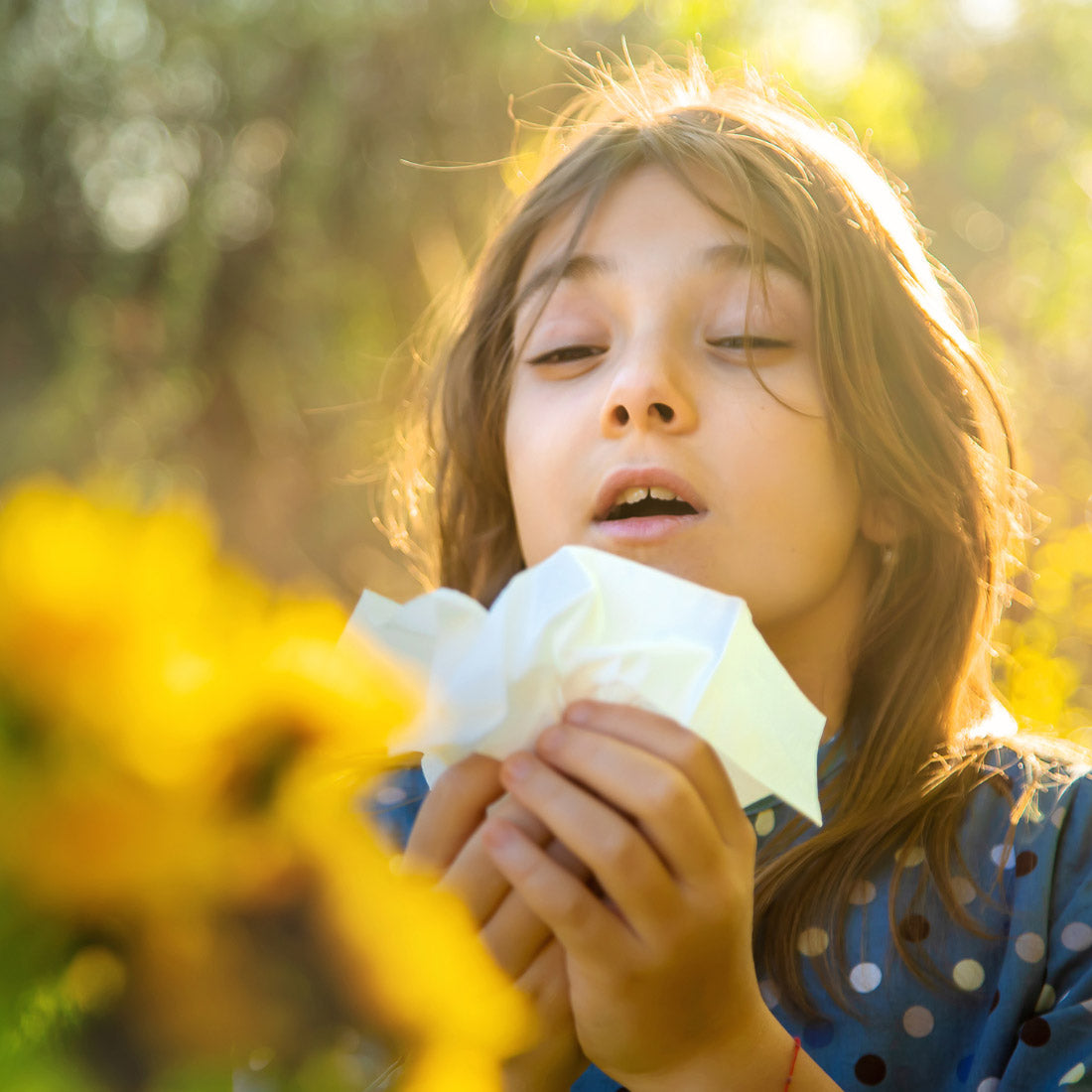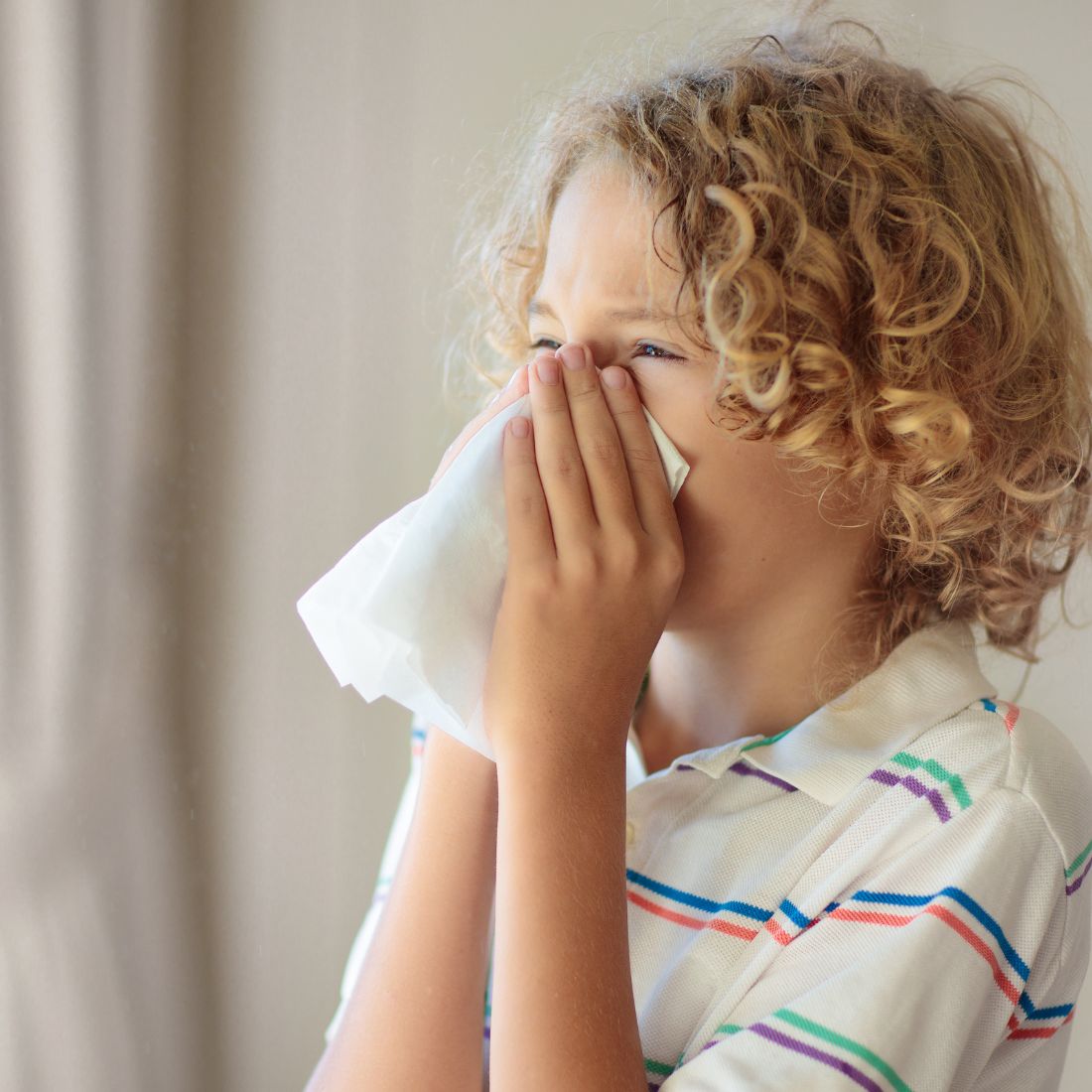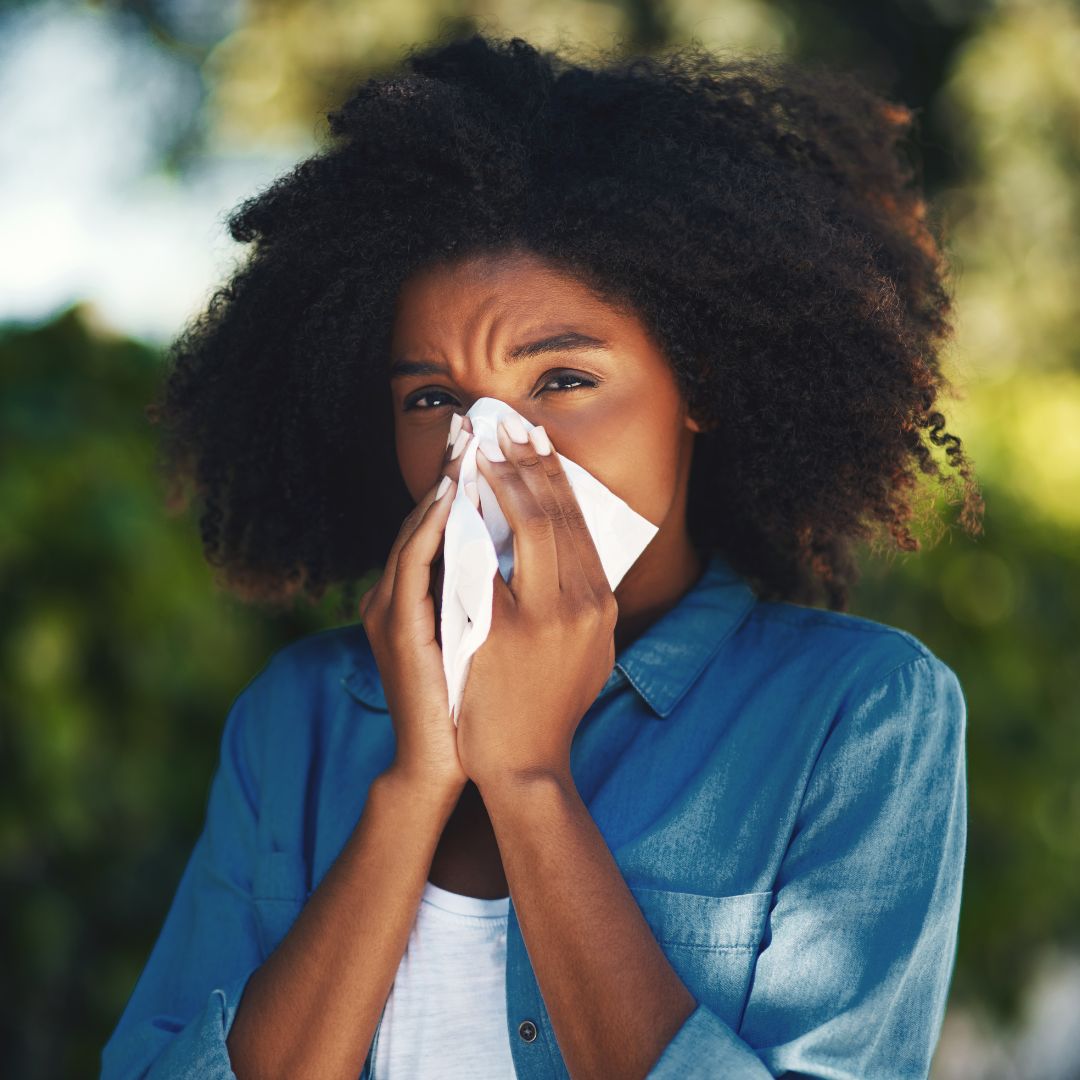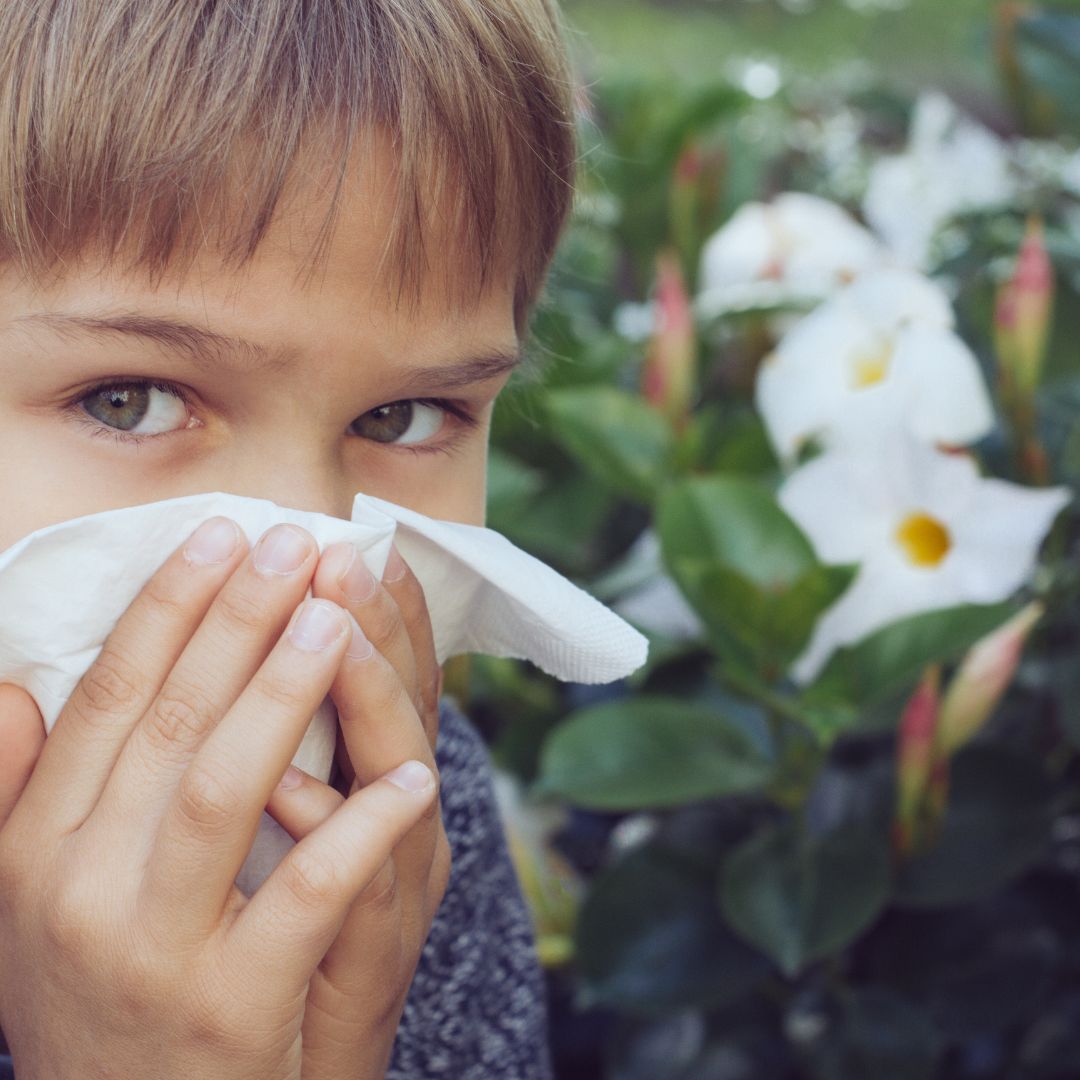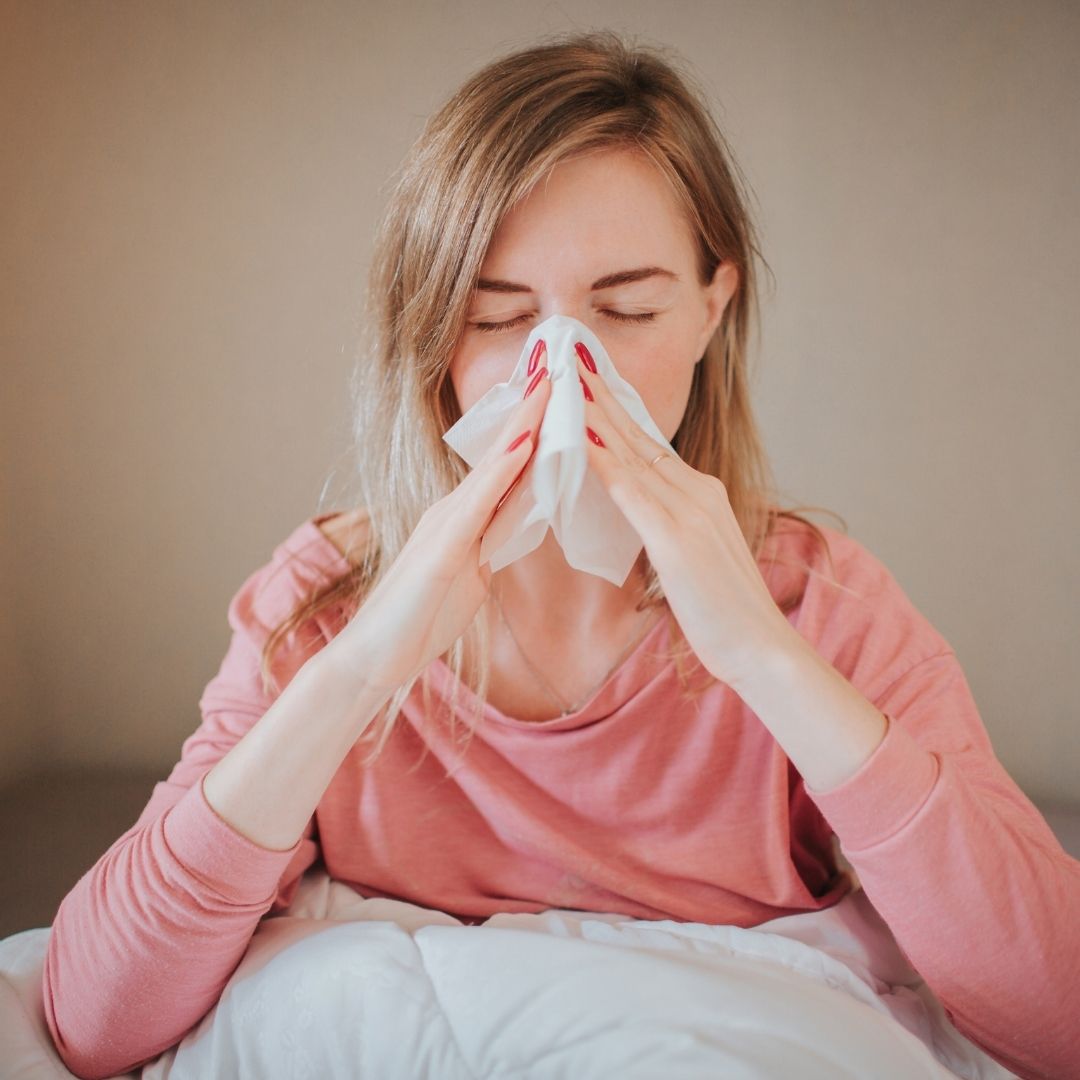The Ultimate Guide to Seasonal Allergies
Sneezing through every season? Our ultimate guide breaks down seasonal allergies—spring pollen, summer grass, fall ragweed, and winter indoor triggers—so you know what to expect and how to manage symptoms year-round. Stay ahead of allergens with expert tips!
Learn more6 Fun Ways to Help Your Child Beat Seasonal Pollen Woes!
Conquer seasonal pollen allergies with 6 fun tricks! From backyard pollen spotting to indoor safaris and bath time adventures, we've got the playbook for turning sneezy days into smiles! Let's make allergy season a breeze!
Learn more5 Easy Ways to Tackle Seasonal Allergies in Kids
As seasons change, kids with allergies face fresh challenges, from sneezing fits to itchy eyes. With 7.1 million US kids affected, this post explores triggers and signs, offering practical tips for relief.
Learn moreThe Science Behind Homeopathy and Allergies
Allergies can be troublesome. They require you to look out constantly for allergens that can cause serious reactions. Treatment-wise, synthetic allergy medication can produce inconvenient side effects, such as drowsiness.
Learn moreHow To Relieve Your Child’s Allergy Symptoms
While cold symptoms can mimic a reaction to an allergen, there is a difference, and various ways to treat it. In fact, it’s estimated that 7.1 million kids in the United States deal with environmental allergies. So, how can you help your child?
Learn moreWhat is Inula helenium?
By Dr. Peter Klapper Ph.D.What is it?Inula helenium, also known as elecampane, is a soothing herb with a long list of potential health benefits. It’s a sunflower-like plant from the daisy family that is native to Europe and northern Asia. Its roots and rhizomes are rich in flavonoids, polysaccharides, fatty acids, and other healthful compounds.What is its history?This herb is the stuff that legends are made of…literally. Folklore suggests that Helen of Troy wore this flower in her hair as she was abducted from her homeland and that this plant grew wherever Helen's tears fell during this time. Its genus name, Helenium, refers to Helen of Troy.How is it used? The list of potential health benefits associated with the roots and rhizomes of Inula helenium is a lengthy one. It has been used to treat coughing associated with bronchitis, asthma, and even whooping cough.How is it taken?Inula helenium is available in teas, tinctures, medicinal honey, syrup, capsules, extracts, or drops such as in Forces of Nature’s Allergy Maximum Strength. Health benefits aside, the root is also used to give absinthe its bitter flavor.How does it work?It’s rich in mucilage which helps thin the mucus that can trigger coughing. (Sometimes mucus is produced in response to irritation from an allergen.) A study in the journal Antioxidants showed that elecampane has anti-inflammatory effects in the lungs, which can also help ease coughing and congestion. This herb is also rich in the prebiotic soluble fiber inulin. Prebiotics help to encourage a healthy and well-balanced gut. Inulin has other positive effects too. It can slow metabolism and reduce blood sugar spikes in people with diabetes.Thinking of giving elecampane a try?Forces of Nature’s Allergy Maximum Strength contains Inula helenium along with other all-natural herbs such as stinging nettle, marshmallow, and Scots pines to reduce vexing allergy symptoms. Place 5 to 10 drops under your tongue at first signs of sniffling, sneezing, cough or other allergy symptoms. Repeat this every 15 minutes until symptoms subside. You can also add three to six drops in water and drink throughout the day.Where can I learn more?Interested in learning more about Inula helenium? Check out these articles: Eclectic School of Herbal Medicine. Elecampane Monograph. https://www.eclecticschoolofherbalmedicine.com/elecampane-monograph/ Missouri Botanical Garden. Inula helenium. https://www.missouribotanicalgarden.org/PlantFinder/PlantFinderDetails.aspx?taxonid=277211
Learn moreAll About Asthma: How To Keep It Under Control
By Dr. Peter Klapper Ph.D. If you suffer from asthma, you may be having a harder time breathing lately due to allergies. If you are, know you’re not alone. The spring is peak season for people with allergies, which is why May is known as “National Asthma and Allergy Awareness Month.”To raise awareness around this disease that affects 25 million people in the United States, (20 million adults and 5 million children) we wanted to help provide tips to keep your asthma under control this allergy season.What Causes Asthma?Although Asthma is a more commonly known illness, you may be wondering what causes flareups. Asthma is a chronic condition that affects your bronchial tubes (i.e. the airway in your lungs.) Those who suffer from this disease airways will narrow, swell and produce extra mucus when triggered which makes breathing difficult and causes coughing, wheezing and shortness of breath.But to be honest, it’s uncertain what actually “causes” asthma. What the medical community does know is that there are many factors that play into what might cause someone to have an asthma attack. Whether that be genetics and asthma runs in the family, to allergens, respiratory infections, and other environmental factors.For some, asthma is only a minor inconvenience and flares up a few times a year, however 5 to 10 percent of asthmatics have it far more severe and feel the impacts of their disease in their everyday life. Not to mention, many may have life-threatening asthma attacks. Unfortunately, asthma cannot be cured but it can be controlled.Tips To Keep It Under ControlKnow Your TriggersAs we stated above, asthma can be triggered by many ailments so it’s important to know what the cause of your asthma attacks might be. For many, common triggers include cold air, humidity, exercise, allergens like pollen and dander and the effects of dealing with a cold.Keep FitWhile some might find that exercise can cause them to use their inhaler more frequently, working out is known to dramatically improve asthma symptoms. And by combining exercise with the proper treatment, improvement can be achieved.Conditions such as obesity cause asthma to be worse, which is why it’s important to stay healthy. By exercising, you strengthen your breathing muscles, improve your immune system, and keep a healthy body weight. However, be mindful on what types of exercise are best for you.Cardio is a great way to strengthen your lungs, but it’s also important to not overexert yourself to the point you can’t catch your breath either. If you can, try and avoid working out in cold air to prevent an attack.Don’t SmokeIf you smoke on the regular, or socially, it’s a good idea to think about quitting. Smoking can reduce the effectiveness of your asthma medication, not to mention the tobacco itself damages your airways causing more attacks.Secondhand smoke can also cause serious breathing issues. In fact, studies have shown a clear link between asthma in children because of secondhand smoke. More than 40 percent of children who go to the emergency room for asthma live with smokers and have more frequent asthma attacks.Pay Attention to Outside Air ConditionsThe weather and outside conditions can play a big part into asthma attacks. If you’re triggered by allergens such as pollen, be sure to pay attention to the pollen count outside, especially during the spring.If a fire is burning nearby, that will most likely also affect your asthma. By being aware of what’s happening outside of your house, you can plan and be prepared with the right medications.Keep Your House CleanSimilar to knowing the conditions outside, it’s also important to keep your house clean as well. If you’re triggered by animal dander or dust, you can reduce symptoms indoors by vacuuming and dusting regularly.Reduce StressAsthma attacks can be triggered by stress. Think about it, when put into a stressful situation, you might feel an overwhelming sense of panic that can cause an increase in breathing and heart rate that leads to shortness of breath and chest tightness.If you know that you have a stressful event coming up, try relaxing with massage therapy, a relaxing bath, exercise and even a good night’s rest.Take Care of Your HealthIf your asthma is severe, it can be affected greatly if you are faced with another ailment. Therefore, it’s so important to take care of yourself. If it’s cold and flu season, get your flu shot, inquire about a pneumonia shot, wash your hands, and wear a mask if in crowded places.Be Diligent with MedicationFinally, be proactive with your asthma attack plan and take your medication. Many preventive medications require you to take them daily, so don’t feel like you can skip out just because you’re currently feeling great.And don’t forget to keep your inhaler with you wherever you go. You never know what might trigger your asthma.
Learn moreHay Fever or The Common Cold: What Is the Cause of Your Sniffles?
By Dr. Peter Klapper Ph.D. It’s that time of year again, the season of new growth and beauty that is mixed with sniffles and watery eyes. If you have allergies consistently each year, you know which month tends to be a trigger for your sinuses. However, if you’ve recently moved to a new area, gotten a new pet, etc., you might be struggling to know if you’re experiencing allergies or a cold.WHAT CAUSES ALLERGIES?Well, for starters, it’s important to know that allergies are a reaction to a substance, not a virus. Allergic reactions can vary when your body comes into contact with a substance that it doesn’t agree with and results in the body trying to fight off harmful pathogens. These reactions can result in rashes, hives, nausea, and fatigue, or even severe anaphylactic shock.Most common allergies do include pollen, food, mold, dust, insects, and pet dander.SEASONAL ALLERGIES AND HAY FEVERAs we stated above, people who experience allergies regularly are pretty aware of what season can cause a flare up. In the spring, tree pollen and grass pollen are typically the culprits. They’re also the reason you may be dealing with cold-like signs and symptoms, such as a runny nose, itchy eyes, congestion, sneezing and sinus pressure - also known as Hay Fever.Hay Fever (allergic rhinitis) is caused by your body’s response to allergens and is the fifth most common disease in the United States. Despite its name, hay is hardly the cause of the allergen, and people rarely experience a fever. It’s also important to pay attention to pollen count because when it’s high, your symptoms will be worse.If you find yourself with a runny nose immediately after being exposed to an allergen, and it is clear mucus, it’s safe to say it’s Hay Fever and not a cold. Also, if your symptoms last weeks rather than days, again it’s most likely Hay Fever.AVOIDING THE ALLERGENIf you have found yourself dealing with the sniffles and sneezing, it’s best to get it taken care of sooner than later to save yourself from the misery.First off, make sure that when the pollen count is high, you’re avoiding too much time outside. While it might seem like a beautiful, warm day and you want nothing more than to open your window, keep it closed. You want to avoid any extra pollen entering your house.Same goes for your body. If you find yourself having to be outside or leaving the house, be sure to shower as soon as you get home to remove any allergens that clung to your hair or clothes. (For more tips on how to combat allergies, check out our article: 5 Natural Ways To Combat Your Allergy Symptoms.)HOW TO TREAT HAY FEVERIf you discover that hay fever is, indeed, the cause of your sniffles, there are treatment options. Doctors offer various antihistamines, nasal and decongestant medications, allergy shots and eye drops. However, if you’re looking for a more natural approach, consider our maximum strength allergy medication.This treatment naturally relieves common indoor and outdoor allergy symptoms including hay fever, hives, watery eyes, a runny, stuffy nose, rhinitis, sneezing, itchy eyes and throat from pollen, ragweed, grasses, animal dander and mold. Our medication works to stop the inflammatory response that allergies cause while stimulating your body's natural healing response to desensitize your body to allergens over time.
Learn moreGetting my Sinuses Under Control Helped Improve my Asthma
Everyone can relate to the feeling of being congested, having a runny nose, and getting headaches or facial pain. These are all symptoms of sinus problems. Recurrent pain from sinus problems is unpleasant and distracting from daily responsibilities and enjoyment. There is nothing worse than trying to work and simultaneously trying to manage a headache or runny nose.
Learn more

